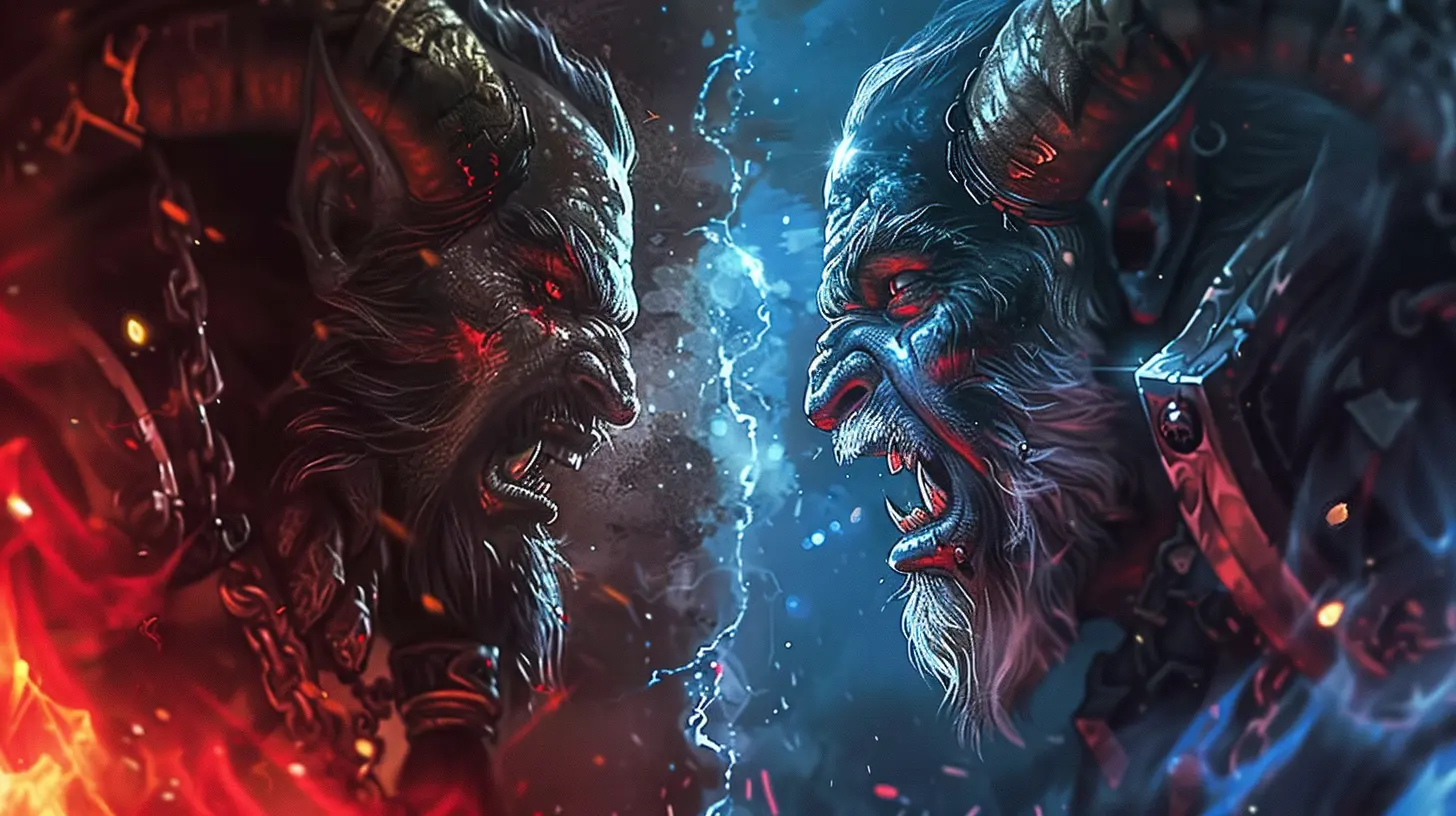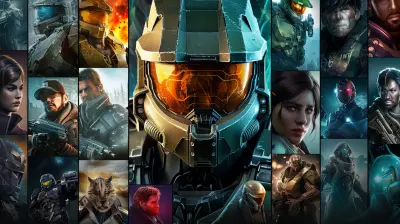Pay to Win Versus Skill-Based Progression
6 November 2025
Gaming used to be all about skill, strategy, and perseverance. You played, you lost, you learned, you improved. But somewhere along the way, the rules of the game started to shift. Suddenly, players with deep pockets started outperforming those with raw talent. And just like that, the gaming world got torn between two starkly different philosophies: Pay to Win (P2W) and Skill-Based Progression.
But what do these terms really mean? Why is this debate so heated? And most importantly, how does it affect you as a gamer?
Let’s unpack this.
What Is “Pay to Win” (P2W), Really?
Let’s face it – not everyone has 40 hours a week to grind. Enter “Pay to Win”. In simple terms, it’s when a game lets you buy power. You open your wallet, and bam – better gear, stronger characters, faster progression.Sounds tempting, right?
P2W games monetize success. Think of mobile RPGs that offer “power packs”, PvP shooters with premium guns, or strategy games where $50 gets you an extra army. These extras don’t just speed things up – they often give paying players a real edge over the free crowd.
So, you’re not just skipping the queue – you’re cutting in front of everyone, including those who’ve been grinding for weeks.
Defining Skill-Based Progression
Now, let’s flip the coin.Skill-based progression is the old-school way: You earn everything through gameplay. No cash shortcuts. Want that epic item? Beat that boss. Want to rank up? Win matches, gain experience, and improve your mechanics.
Games like Dark Souls, Counter-Strike: Global Offensive (CS:GO), or Hollow Knight stick to this philosophy. Here, your character doesn’t get stronger unless you do. It’s grit over gold.
What makes this style so rewarding? It’s the sense of achievement. Every win, every level, every unlocked ability – it’s earned, not bought.
Why Players Flock to Pay to Win Models
Okay, so if skill-based progression is so fulfilling, why are P2W games raking in millions?1. Lack of Time
Let’s be honest. Adulting is hard. Most people don’t have hours to sink into daily grinds. P2W appeals to those who want to stay competitive without the time investment.2. Instant Gratification
We live in a world of fast food and faster Wi-Fi. Who wants to spend 100 hours grinding when you can just swipe your card and get that shiny armor right now?3. Competitive Edge
Some players just want to win – period. And if paying a little extra helps them win more often, they’re all in.
The Dark Side of Pay to Win
Now here’s where it gets murky.P2W can absolutely wreck a game’s fairness. Imagine spending weeks mastering your aim in a shooter, only to get one-shot by someone who paid for a golden gun with boosted stats.
Sound frustrating? It is.
1. Alienating Free Players
Once paying players dominate leaderboards, free players start feeling like underdogs. They either pay up or quit. This can create a toxic “wallet wars” environment where competition feels meaningless.2. Undermining Skill
In games where money talks louder than skill, it sends a weird message: your time and effort are worth less than someone else’s credit card.3. Short-Term vs. Long-Term
P2W might generate fast cash for developers, but it often kills the game’s long-term health. Player retention drops, communities splinter, and the game can become a ghost town.Why Skill-Based Progression Still Matters
Games with skill-based progression build loyal communities. Why? Because players trust the system.1. Fairness Feels Good
When everyone starts equal, wins actually matter. Victory feels sweeter when you know it wasn’t bought.2. Community Growth
Fair games attract players who are in it for the long haul. Think Rocket League’s ranked ladders or the tight-knit realms of World of Warcraft Classic. Skill-based games foster friendships, rivalries, and passionate fanbases.3. A Greater Sense of Achievement
You didn’t pay for that legendary sword. You earned it. That makes all the difference. The struggle makes the payoff unforgettable.Popular Games That Showcase Each Model
Let’s compare a few big names to see how each approach works in practice.🤑 Pay to Win Examples:
- Clash of Clans – Gems buy everything from faster upgrades to combat advantages.- Diablo Immortal – Criticized for heavy monetization influencing gameplay and power levels.
- Game of War – Basically a wallet tug-of-war. The more you spend, the more you dominate.
💪 Skill-Based Examples:
- Elden Ring – No microtransactions; only skill, exploration, and strategy will carry you.- Valorant – Cosmetics only. Winning is all about mastery, reflexes, and teamwork.
- Minecraft (Survival Mode) – What you build and survive is all up to you. No shortcuts.
The Hybrid Middle Ground
Here’s the twist – not all games are purely P2W or skill-based. Some strike a balance, offering paid content without breaking fairness.1. Cosmetic Monetization
Games like Fortnite and Apex Legends sell skins, emotes, and battle passes – but none of it affects core gameplay. You can look cool and still be completely average at the game (no judgment).2. Time Savers, Not Power Boosts
Some MMOs offer XP boosts or faster travel. These give you convenience but no actual edge in combat or PvP.3. Expansion Packs
Games like The Witcher 3 or Cyberpunk 2077 offer paid DLCs. You get new content, but not power. It’s a win-win for developers and players.Which Model Is “Better”? (Spoiler: It Depends)
Here’s the thing – there’s no one-size-fits-all answer.If you’re a casual player with limited time, Pay to Win might feel like a practical choice. If you’re a competitive purist, skill-based progression will always be your jam.
But most gamers agree on one point: When monetization starts ruining fairness, the fun disappears.
It all boils down to intent. Are you paying for fun or paying to dominate? And are you okay with others doing the same?
Remember: Games are supposed to be fun, not finance battles.
The Psychology Behind the Pay to Win Trend
Let’s dig a little deeper.Why does P2W even work from a psychological standpoint?
1. FOMO (Fear of Missing Out)
Limited-time offers, exclusive gear, leaderboard boosts – they make players feel like they’ll fall behind if they don’t buy in.2. Status Symbols
In many games, items aren’t just useful – they’re flashy. Owning rare skins or premium vehicles gives players a sense of superiority.3. Sunken Cost Fallacy
Once someone spends real money, they’re more likely to keep playing – and keep spending – to “justify” the investment.Game developers know this. And they use it masterfully.
Can Pay to Win Ever Be Ethical?
Surprisingly, yes – but it’s rare.Here’s when P2W can be tolerable:
- All competitive modes are fair and balanced – purchases only affect PvE or solo content.
- Buyers don’t gain an advantage over non-paying players in ranked or tournament play.
- The system is transparent about what you’re paying for. No shady loot boxes or random power-ups.
Basically: Be honest, be fair, and keep real competition untainted.
What Gamers Can Do About It
We’re not powerless. In fact, gamers have more influence than ever.1. Vote With Your Wallet
Don’t support games that force you to pay to compete. Spend your money on honest, skill-based games instead.2. Leave Feedback
Join forums, write reviews, tweet the devs. Your voice matters. Many studios tweak monetization based on community backlash.3. Support Indie Developers
Many indie games prioritize gameplay over profit. They offer rich, rewarding experiences without nickel-and-diming players.Final Thoughts
The war between Pay to Win and Skill-Based Progression isn’t going away anytime soon. It’s a clash of convenience versus integrity, money versus mastery.But ultimately, the choice is yours. Pick the games that respect your time, your wallet, and your skills. Whether you’re earning your victories or buying your way through, just make sure you’re genuinely having fun.
Because at the end of the day, games are supposed to challenge us, reward us, and bring us joy – not drain our bank accounts or our patience.
all images in this post were generated using AI tools
Category:
Pay To Win GamesAuthor:

Audrey McGhee
Discussion
rate this article
2 comments
Ryder Castillo
Great article! The debate between pay-to-win and skill-based progression highlights the importance of fair gameplay. Ultimately, rewarding skill fosters a more engaging and satisfying gaming experience for all players.
February 14, 2026 at 3:41 AM
Meredith McTier
Why win with skill when you can just buy a golden ladder? Who knew gaming was a financial flexing competition!" 🎮💸
November 8, 2025 at 4:33 PM

Audrey McGhee
Great point! The balance between skill and spending is a hot topic in gaming, often blurring the lines of fair competition.


